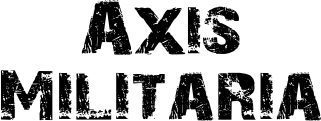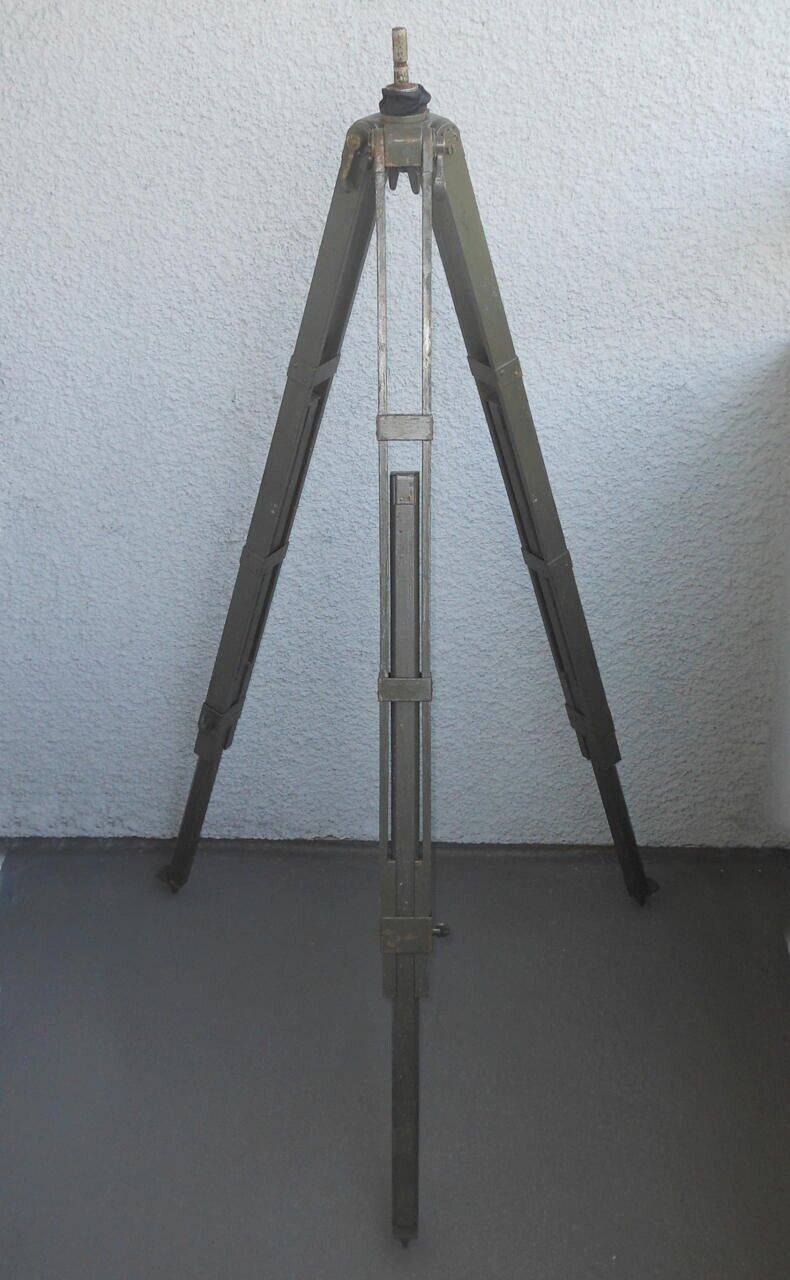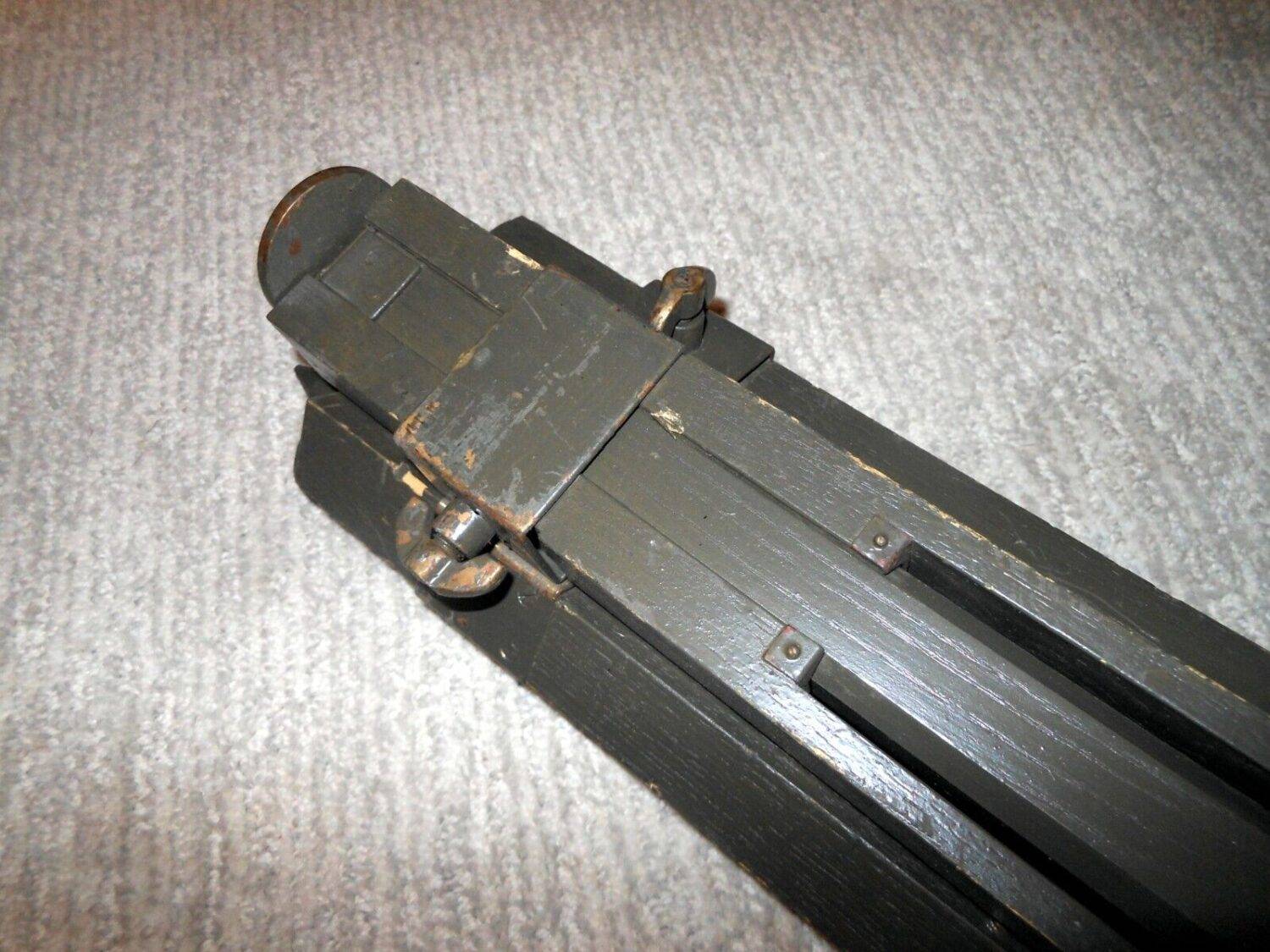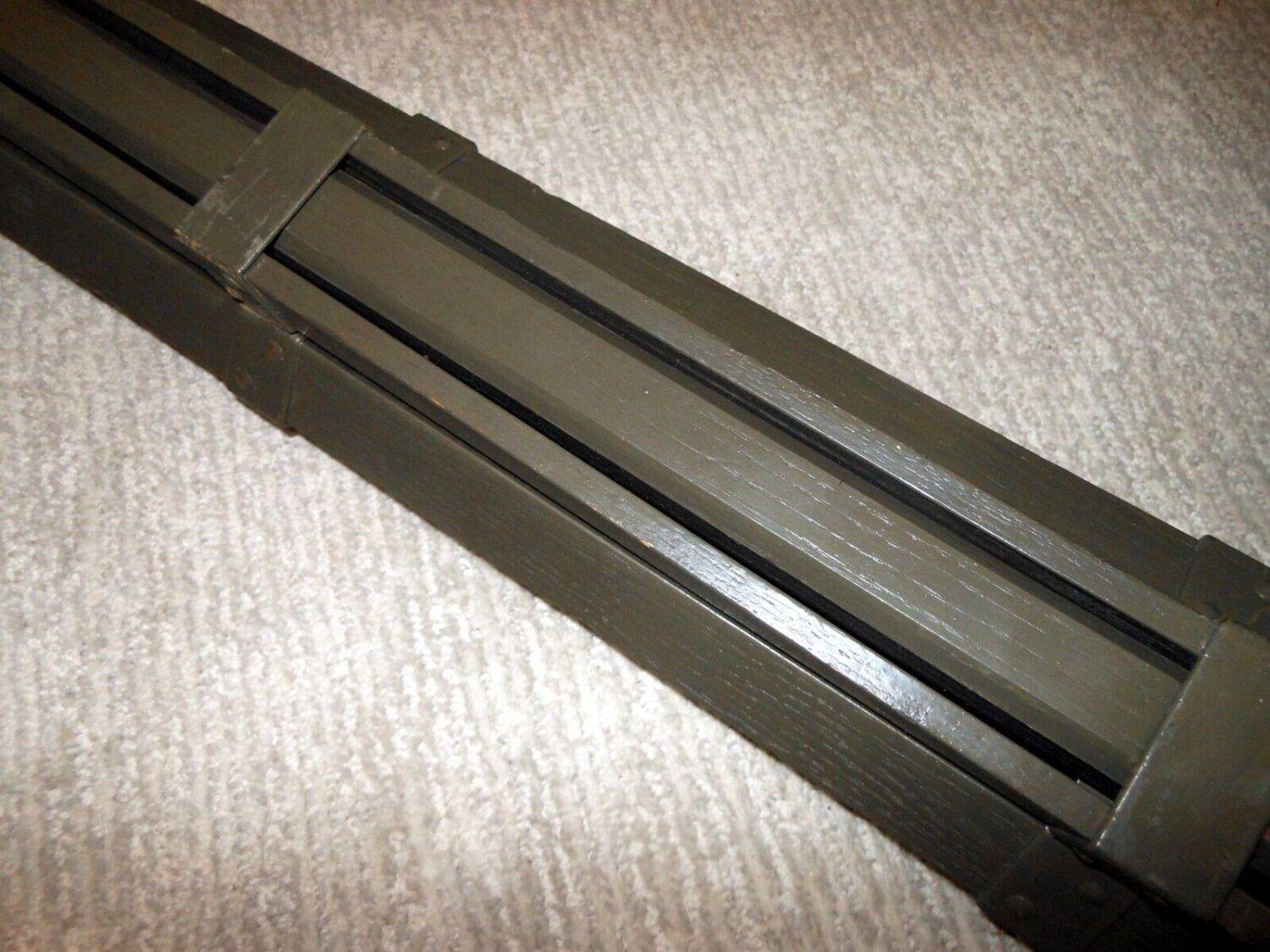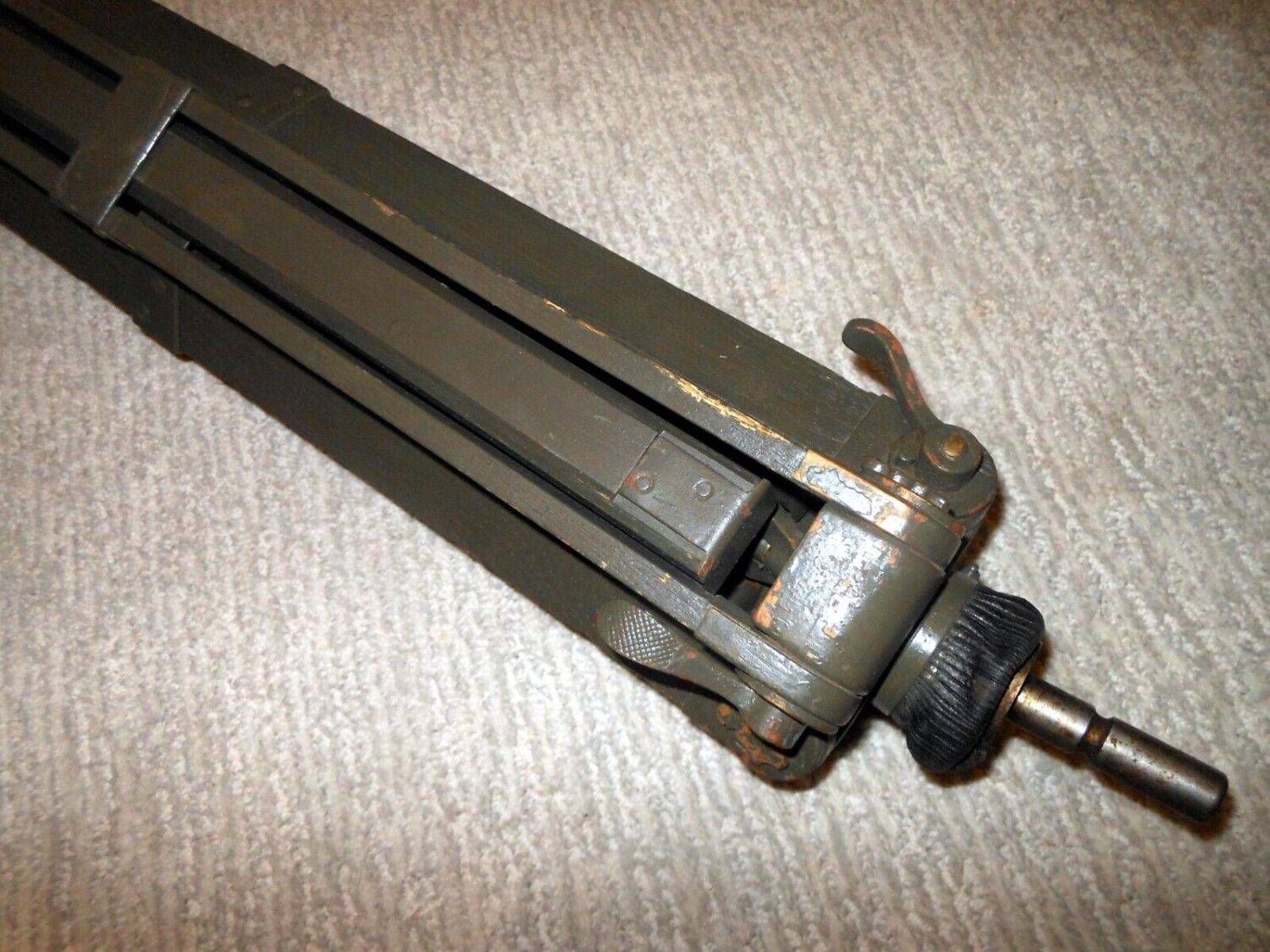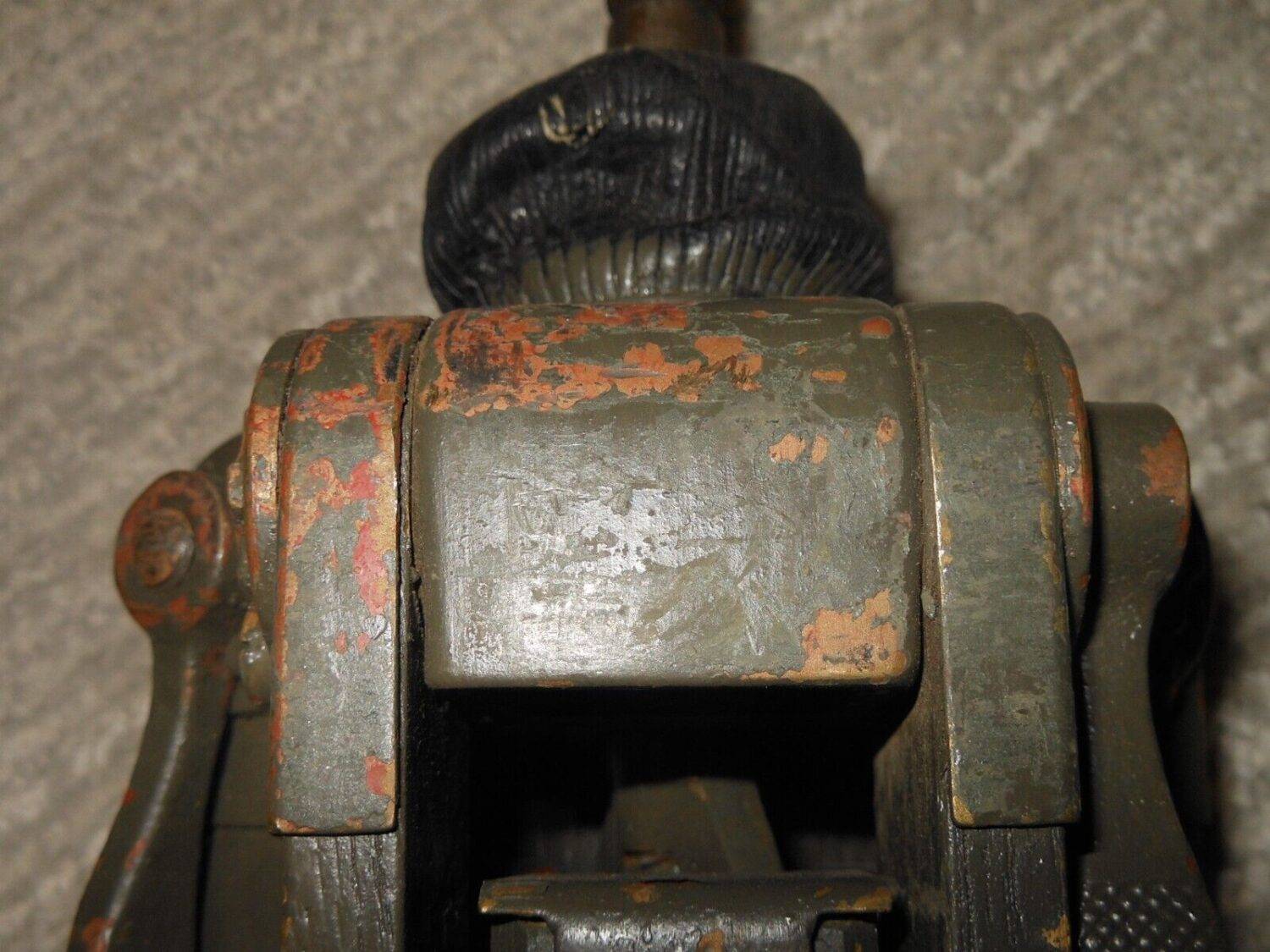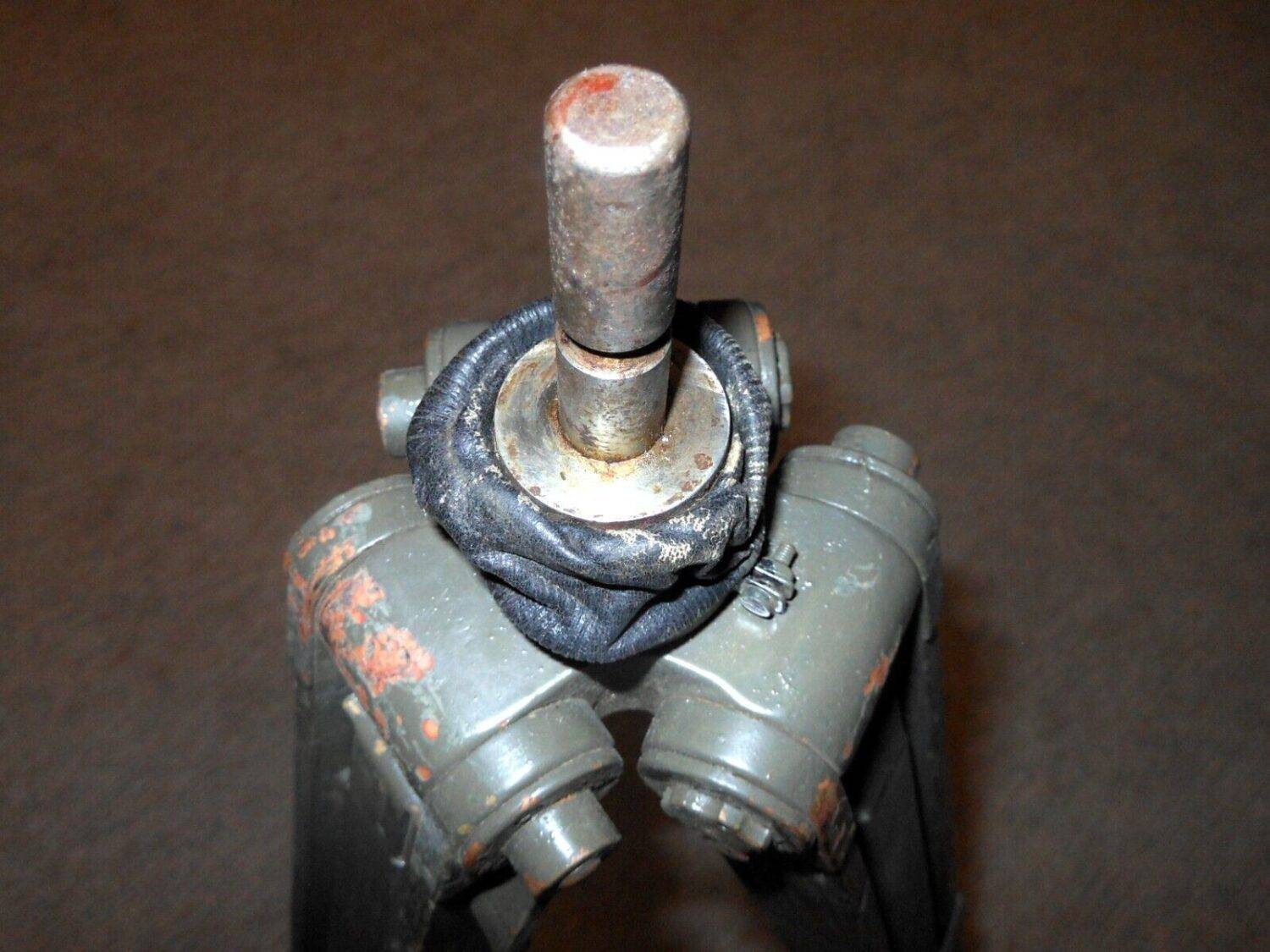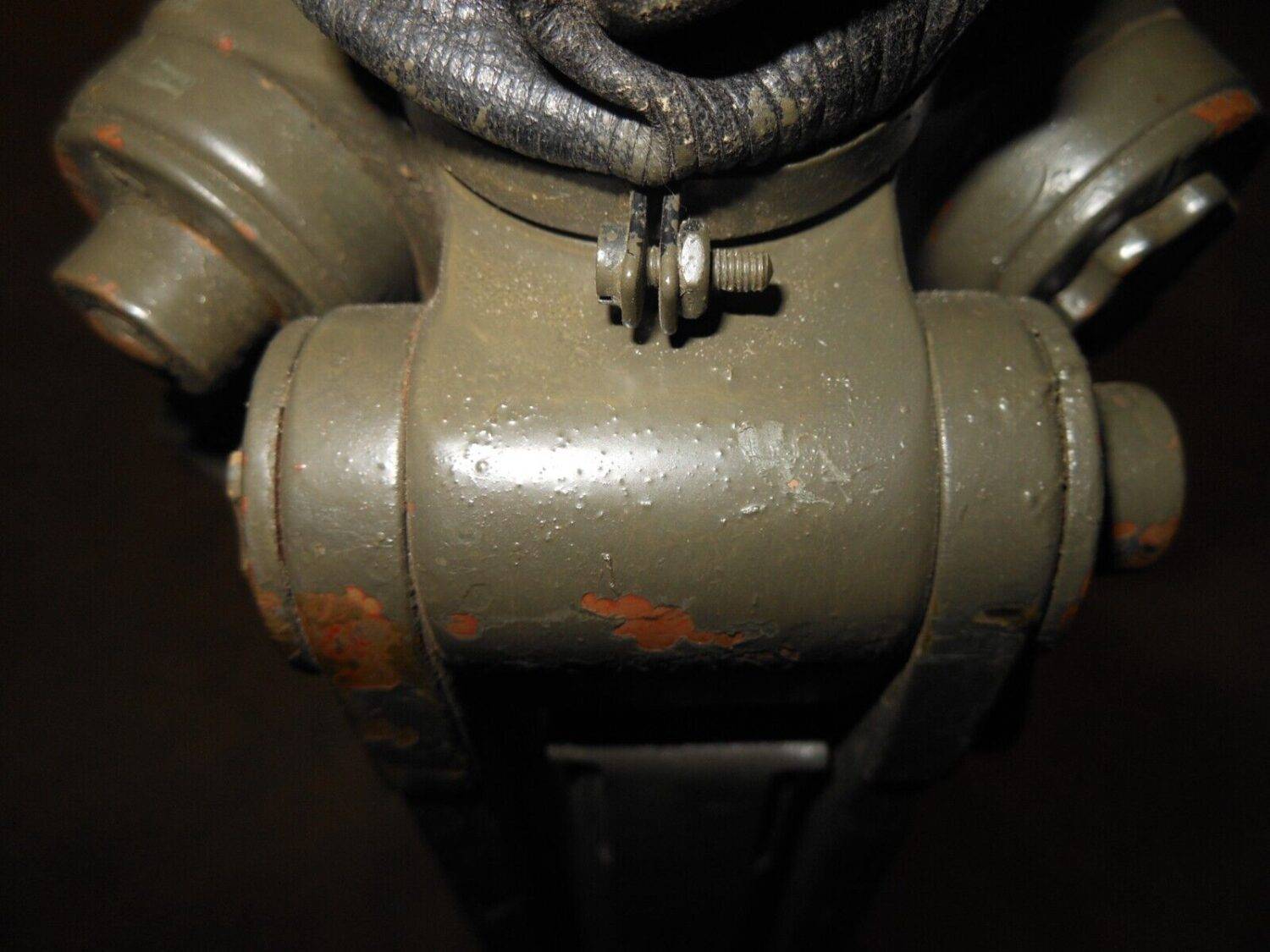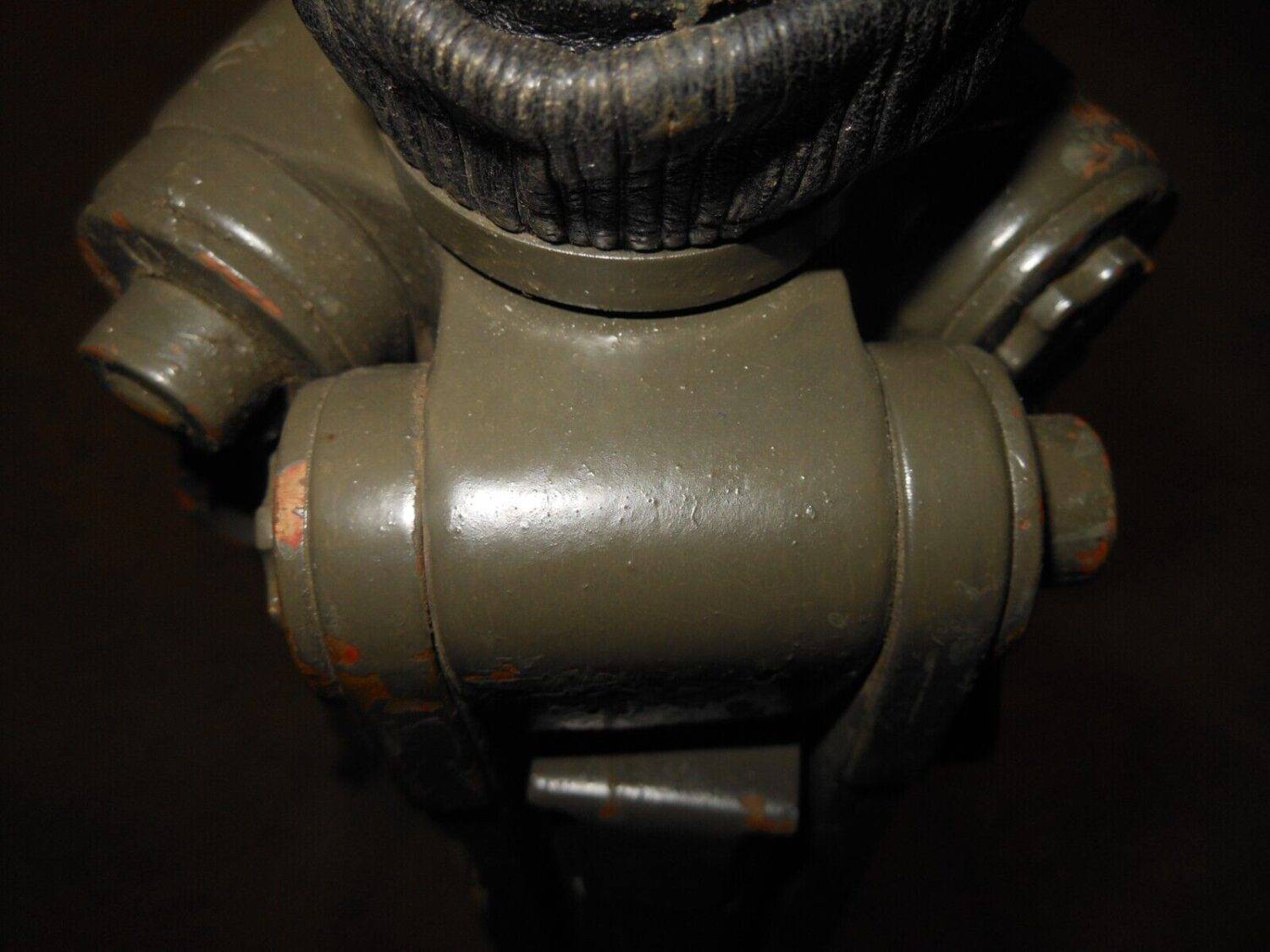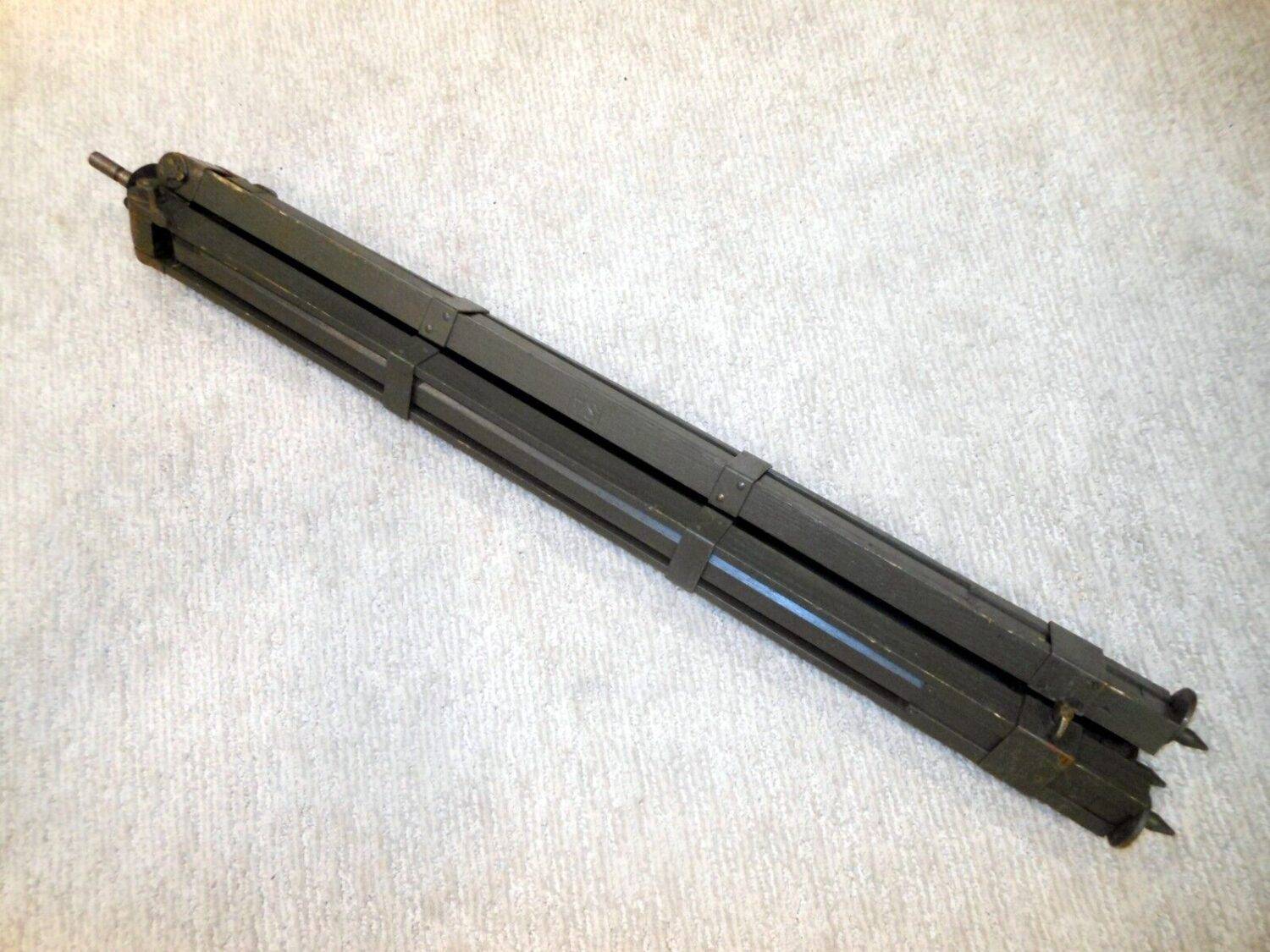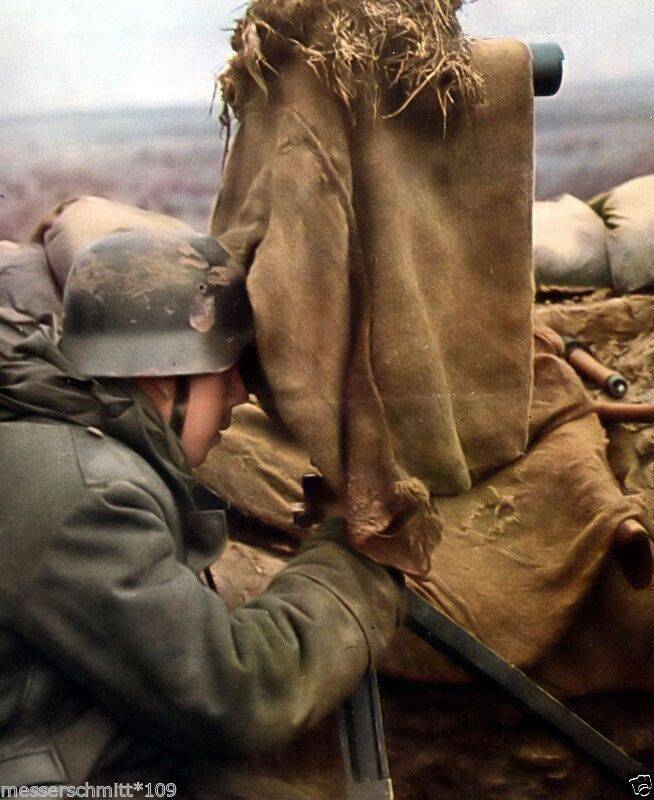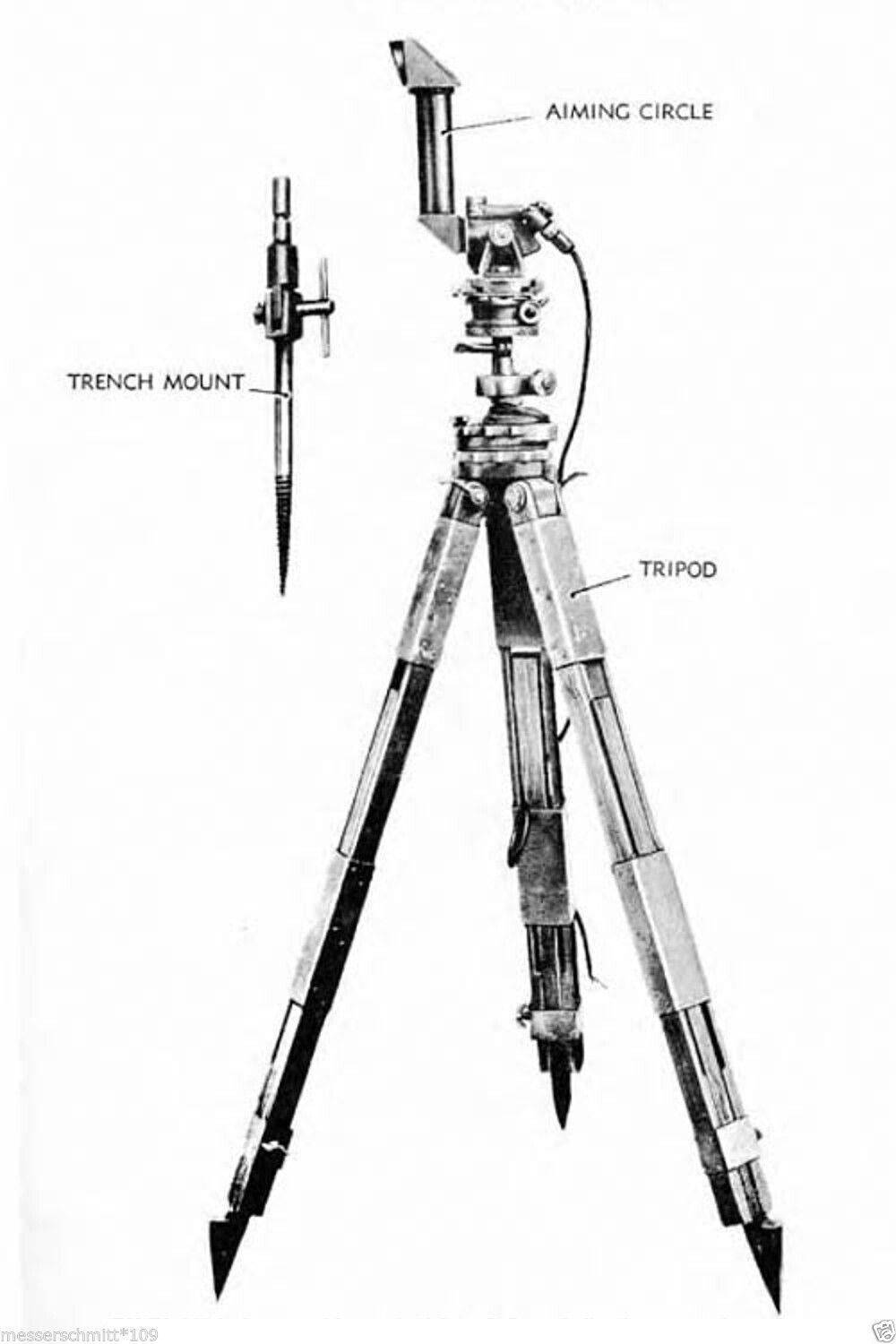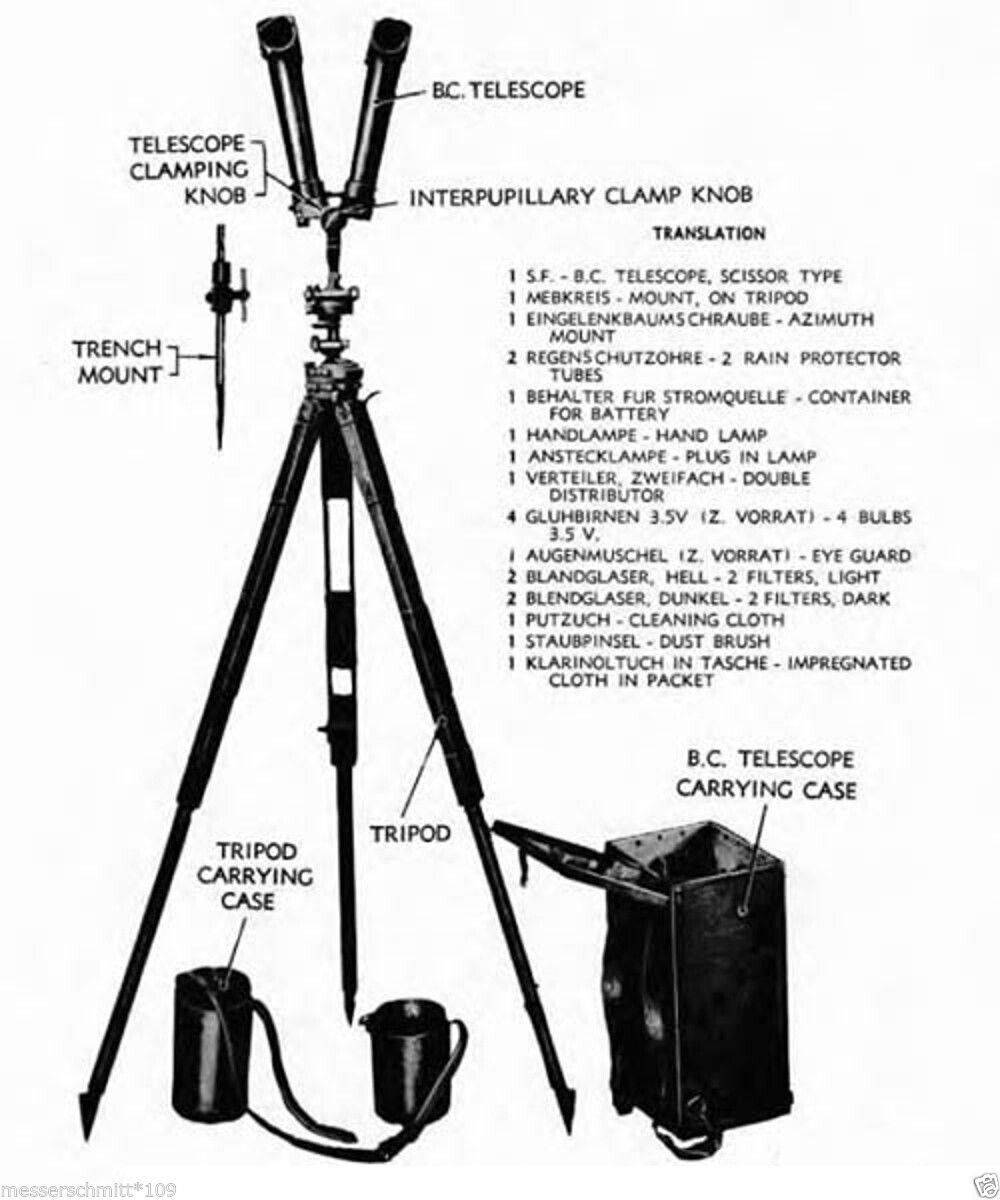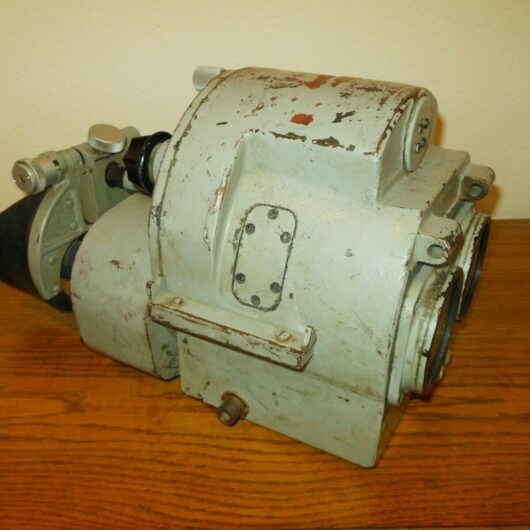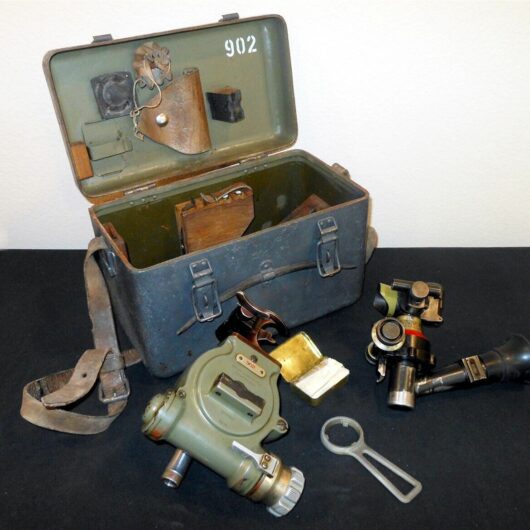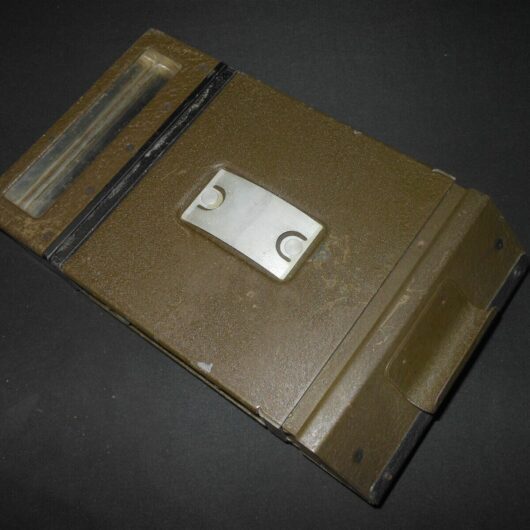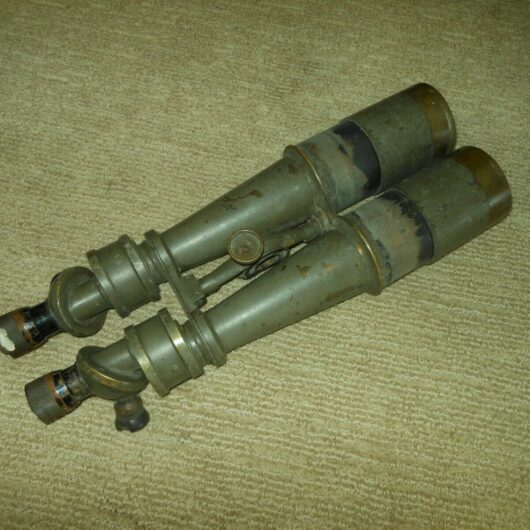Description
You are bidding on a SUPERB used example of WW2 German Wehrmacht Optics Tripod, as specifically used on the Selbstfahrlafetten-Zielfernrohr S.F. 14, Richtkreis RK-31 Mortar Sight, and others!
In 1894, Carl Zeiss introduced a new and unusual type of prism binocular. Zeiss called its invention the Scherenfernrohr (scissors telescope) – an 8 x 10 power device fitted with adjustable twin periscopic extensions connected by a hinge. An observer could position the tubular “ears” upright and parallel to each other or splayed out horizontally for greater depth perception (stereoscopic vision), causing objects to appear in modelled relief, strongly distinct from the background and thus estimate the range. This hybrid between binoculars and a periscope enabled the observer to remain safely concealed in dug-outs, behind walls or even tree trunks with only the objective lens visible to the enemy.
By World War II the design remained virtually unchanged except for an upgrade in magnification to 10 x 50 and continued to be a useful tool in the Wehrmacht for general observation (in both vehicles and on the ground) and for artillery fire observation and direction throughout the war.
It was to be used for: Observation and reconnaissance; Measuring angles of azimuth; Measuring angles of site and elevation; Measuring height of shell bursts; Establishing safety zones for advancing friendly troops; and to lay field guns.
Made of wood and steel (probably by Carl Zeiss, Jena), this aiming periscope tripod was manufactured between 1939 and 1942. Though some of the original German paint can be seen, it was repainted by Finland during the war (should be easy to remove), and features an “SA” acceptance stamp. All adjustments work perfectly, and there are NO breaks or damage! There are a couple coats of paint, so it is most likely covering the original manufacture stamp. I have shown the exact type in use in the last image. A VERY RARE item, it would make a PERFECT addition to any collection or display!
